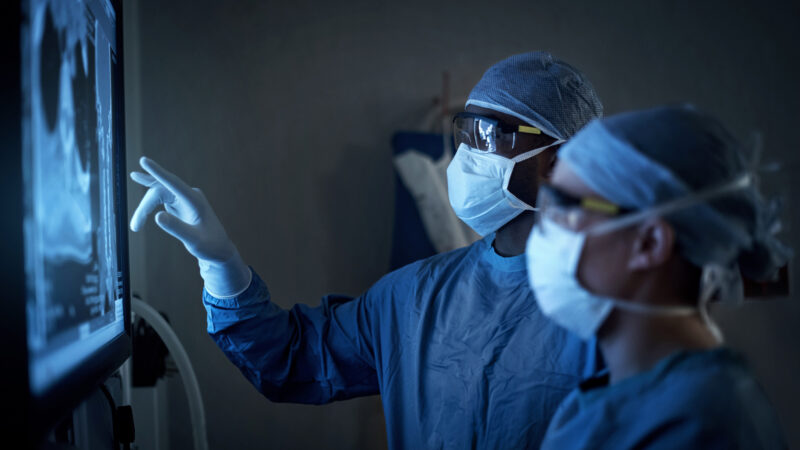
The NHS Implant Analysis Service is an independent, fast, efficient and cost effective service, which conducts physical analysis and issues reports on Used Medical Devices (UMD’s) to the benefit of the NHS, patients and manufacturers.
The service is intended to be used as an adjunct to the other data and information surgeons currently have at their disposal to provide a more comprehensive picture of how a UMD has performed.
Analysis

In the UK, physical analysis of a used medical device (UMD) is not mandated despite repeated calls from surgeons and regulatory bodies for this to become routine. Most devices are still thrown away in the operating room without gathering an understanding of their performance beyond a cursory look at the end of surgery.
In fact, less than 1% of all revised primary hips and primary knees are physically routinely analysed. When explants are discarded, they deny the orthopaedic surgeons, manufacturers, and regulators the opportunity to learn about the true performance of a device.
The past 20 years have seen controversy over metal-on-metal hips, orthopaedic polyethylene, breast implants and, more recently, vaginal mesh. So wide and strong are the implications of failed devices that Baroness Cumberlege was asked to chair a committee to report on UMD’s, published in 2020.
Metal-on-metal
It is against this backdrop of metal- on-metal hips and the Baroness’ report, as well as the recognised need by the MHRA, Beyond Compliance and ODEP and many other interested parties/organisations that the NHS IAS has been launched.

Keith Tucker, Chair of ODEP and the Beyond Compliance Advisory Group said: “In BC (Beyond Compliance) we have always thought that explant analysis of all retrieved implants, particularly if they are novel, should be undertaken. To date this has hardly happened and BC and ODEP are delighted that the NHS Implant Analysis Service is going to facilitate this essential part of implant monitoring.”
The NHS Implant Analysis Service has been launched to address these needs and drive solutions, distinguishing genuine product issues from sporadic events.
Delivered by the NHS, it will not only confirm recognised best practice by providing a quick efficient service for the independent analysis and reporting of UMD’s but also establish robust, solid evidence. The service will directly improve outcomes for all healthcare organisations as well as post-market surveillance for manufacturers, and assist longer-term research by ensuring more devices are physically available.
Early warning
Not only will the NHS Implant Analysis Service act as an early warning system for poor performance of UMD’s, it will also provide validation of well performing devices.
It provides physical evidence to assist in patient/implant profiling and drives down costs and risks to patients receiving possible underperforming devices whilst also reducing medical waste and providing a more sustainable route for disposal. This makes it the next logical step for the medical device orthopaedic industry, which recognises and supports a need for increased learning opportunities and a renewed focus on patient safety. It closes a gap in the way we handle UMDs which has been an unmet need in the UK for far too long.
Read more about the NHS Implant Analysis Service.
Issued on behalf of NTH Solutions